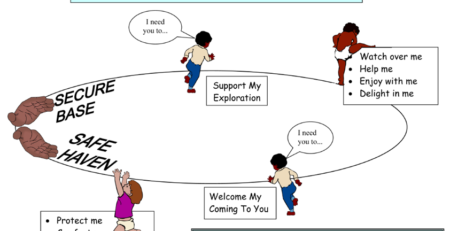We all have experiences in life that are difficult, painful, or challenging. Our internal voice can be harsh, judging us for our perceived shortcomings and mistakes. Instead of getting caught up in self-criticism or negative thinking patterns, self-compassion encourages us to approach ourselves with kindness and explore constructive ways to address our challenges.
As Dr Kristin Neff (Educational Psychologist) states, “Self-compassion is simply the process of turning compassion inward. We are kind and understanding rather than harshly self-critical when we fail, make mistakes, or feel inadequate. We give ourselves support and encouragement rather than being cold and judgmental when challenges and difficulty arise in our lives—just as we would for a dear friend going through tough times. It is a practice of cultivating empathy and kindness toward ourselves, recognising that everyone faces hardships in life.
Our internal voice can be harsh, judging us for our perceived shortcomings and mistakes. Just as we would for a dear friend going through tough times. It is a practise of cultivating empathy and kindness toward ourselves, recognizing that everyone faces hardships in life.
Why is it so difficult to be self-compassionate?
Self-compassion requires a balanced approach to our negative emotions, avoiding both suppression and exaggeration. It requires accepting the fact that we are suffering — and often it is due to the harsh self-criticism that is so painful. We often believe we need our self-criticism to motivate ourselves—that if we’re too kind to ourselves, we’ll become self-indulgent and lazy.
Is that true, though?
Well, the research shows just the opposite: self-criticism undermines our motivation. When we criticise ourselves, we activate our body’s threat defense system (the reptilian brain)—the “flight/fight” response. The “threat” is to our self-concept. eg. We may not like an imperfection that we see in ourselves, so we ‘attack’ the problem – ourselves – saying unkind, nasty things to ourselves.
The thing about self-criticism is that it’s a two-pronged attack – as we are both the ‘attacker’ and the one getting ‘attacked’. This means our bodies become flooded with the stress hormones cortisol and adrenaline to prepare us for action against a threat. Someone who is constantly judging and criticizing themselves experiences high levels of stress. If this ‘self-attack’ persists for some time, the body will start to ‘shut down’, and we will become depressed. And depression is not a motivational state of mind.
Another way to feel safe is to tap into our mammalian ‘caregiving system’ brain. A key feature of being a mammal is the early attachment between mother and infant that creates a safe, nurturing environment for growth. Our bodies are programmed to respond to warmth, gentle touch, and soft vocalisations. When we give ourselves compassion, research shows we actually reduce our cortisol level (stress) and release feel-good hormones (oxytocin and opiates). And when we feel safe and comforted, we are in the optimal mind state to do our best.
The nay-sayers:
Some people believe being self-compassionate is being self-indulgent or selfish. It isn’t. The more we are able to be open-hearted to ourselves, the more we have available to give to others.
Dr Neff’s research in self-compassion reveals that “people who are compassionate to themselves are much less likely to be depressed, anxious, and stressed and are much more likely to be happy, resilient, and optimistic about their future. In short, they have better mental health“.
Tips to Practise Self-Compassion
Self-compassion is a practice of goodwill, not good feelings. The essence of self-compassion lies in treating ourselves with the same warmth and understanding that we would offer a dear friend. When faced with challenges, self-compassionate individuals avoid the trap of trying to control or fight against their pain. Instead, they embrace their feelings with kindness and care, recognising that suffering is an inevitable part of life.
However, the process of opening our hearts to self-compassion may lead to a temporary increase in pain, a phenomenon known as “backdraft.” It can be likened to opening a door in a burning house, where oxygen rushes in and flames surge out. Similarly, when we offer ourselves unconditional love, we may uncover past wounds and unmet needs that require healing. Warmth and care go in, and pain goes out.
If, at any point, we feel overwhelmed by difficult emotions, it is crucial to listen to our needs and respond with compassion. Pull back temporarily if it’s too much. Taking a step back and engaging in simple acts of self-care, like taking deep breaths, savouring a cup of tea, or spending time with a furry friend, can offer immense support during tough times.
As we nurture the habit of self-compassion, we create a healing environment that strengthens our resilience and deepens our warmth, care and even ‘love’ and understanding for ourselves and others. By doing so, we reinforce the habit of self-compassion—giving ourselves what we need in the moment.
Self-compassion isn’t about chasing constant happiness; it’s about embracing our whole human experience, with all its ups and downs, imperfections, and vulnerabilities.
By embracing self-compassion, we open the door to growth and healing, allowing ourselves to flourish more.
Conclusion:
Practising self-compassion offers significant advantages for our mental well-being and overall health. Self-compassion is a transformative practice that empowers us to overcome self-criticism and embrace a kinder, more understanding relationship with ourselves.
So, I would like to invite you to try and be more compassionate to yourself. You already know how to comfort a friend or a child. You know what to say to them. You just need to be a good friend to yourself.
It really could change your life, and it’s easier than you think.
Self-compassion is worth looking into…. 😊
What is self-compassion handout (WA Health CCI):
https://www.cci.health.wa.gov.au/-/media/CCI/Mental-Health-Professionals/Self-Compassion/Information-Sheets/Info-What-is-Self-Compassion.pdf
References:
CCI (Centre for Clinical Interventions, WA Health)
“Self-Compassion: The proven Power of Being Kind to yourself” by Dr Kristin Neff (2011) and
“The Mindful Self-Compassion workbook: A proven way to accept yourself, find inner strength, and thrive” by Dr Kristen Neff and D.K. Germer (2018)















